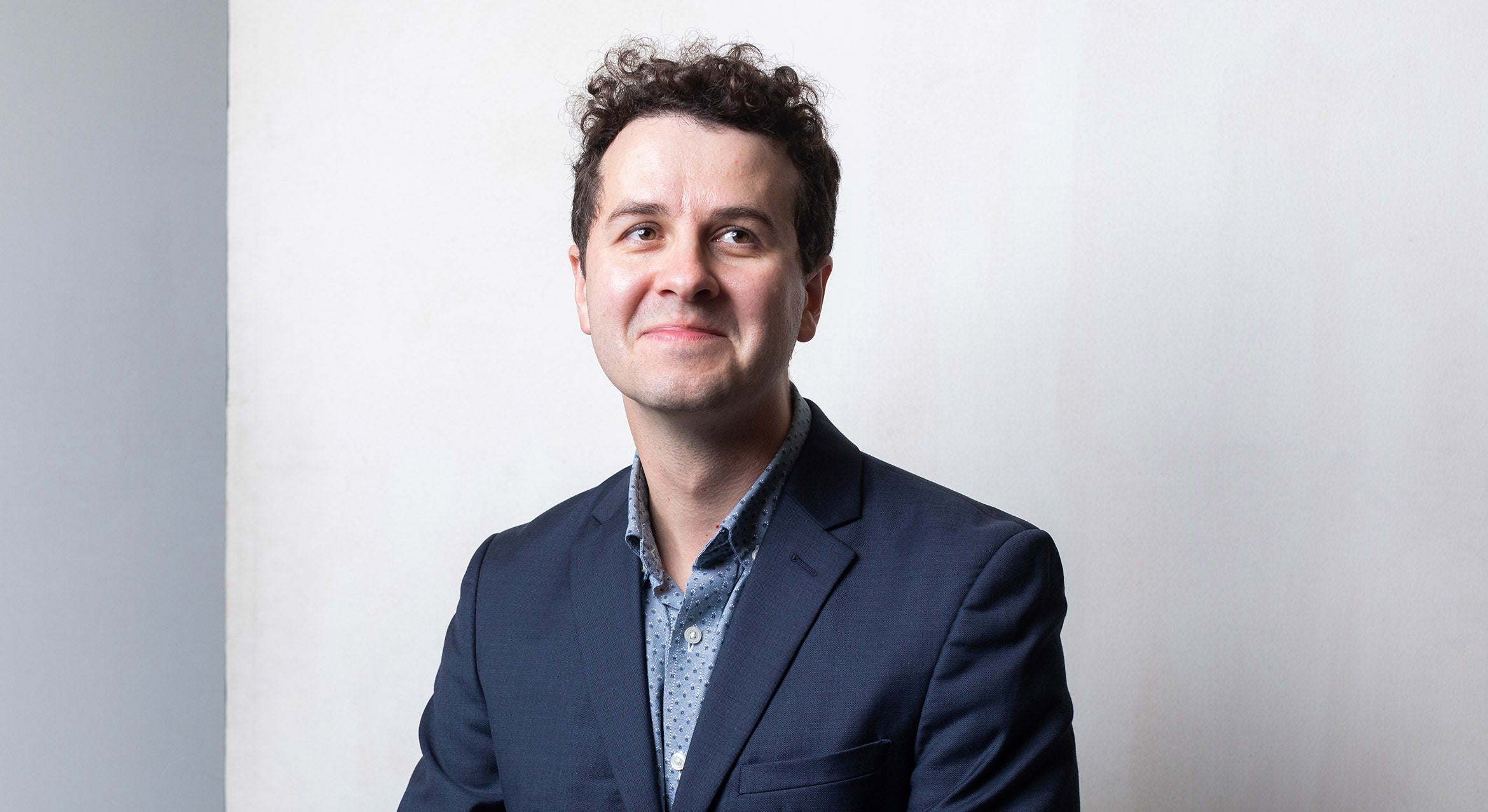Dimitrije Djordjevic, who often thinks of his life as four linked but separate existences, has received an award that considers them all as one.
The UC Santa Barbara emeritus professor of history received a lifetime achievement award during an October visit to his native Serbia.
The award, given by Matica, a patriotic Serbian group that seeks to maintain bridges between expatriate Serbs and the motherland, recognizes Djordjevic's patrician roots in Yugoslavia; his bravery and patriotism as a dissident voice for freedom during the oppressive Nazi, Soviet, and Communist Yugoslav regimes; and his career as a leading international scholar of Balkan history.
Djordjevic was in Belgrade to visit friends and family and was invited to a meeting of the expatriate organization, whose members include many friends.
Soon after his arrival, he was shocked to learn he was to be given the group's lifetime award.
"It was a complete surprise," said Djordjevic, who came to UCSB from Serbia---then a part of Yugoslavia---in 1970 and retired in 1991. "It was nice, and I was very pleased."
Djordjevic has not always been the most welcome citizen in his native land. Part of a prominent Belgrade family, he was studying law at the outbreak of World War II, but quit his studies to join the resistance movement soon after the Germans took control of Yugoslavia. His activities there earned him prison sentences in the Banjica and Mauthhausen concentration camps that nearly claimed his life. When the war ended in 1945, he resumed his democratic-minded political activities, organizing a student opposition movement to the Soviet Yugoslav regime and was soon back in prison, serving a four-year sentence. Thanks to the efforts of his family and outsiders who lobbied for the release of Yugoslav political prisoners, the government gave him a pardon in 1947.
Despite the pardon, the government maintained tough political sanctions against Djordjevic.
Repeated attempts to gain admittance to study at the University of Belgrade went unanswered until 1950. In 1954, at the age of 32, he earned a bachelor's degree in history, but was not able to find a graduate post until 1958, when he became an assistant at the Historical Institute of the Serbian Academy of Sciences and Arts, where his uncle was a member.
In 1962, by then 40, he was awarded his Ph. D.
Despite his academic standing and a growing international reputation as a scholar of Balkan history, Djordjevic remained stigmatized by his earlier political activity.
While the government allowed him to lecture outside the country, it would not allow him a position as a full-time tenured faculty member at any of the state universities. "They did not want me to have any contact with students," he said. Then, in 1968 and 1969, the government even began to cut back on his freedom travel abroad to lectures and conferences.
Twice during the 1960s, Djordjevic came to UCSB to lecture. Following one such visit, administrators offered him a professorship if he would stay.
"At that time, I was still too attached to my native country," Djordjevic said. And so he refused.
But in 1970, with his career options shrinking at home, UCSB made another offer.
He accepted, snuck himself and his family out of Yugoslavia and came to the United States.
"And that is how I came to Santa Barbara, a paradise," Djordjevic said.
"It was a big change, but UCSB was really very generous.
They offered me a full professorship. And they offered to spend $50,000 to buy a private library for me from Belgrade so I could continue my work."
At UCSB, Djordjevic continued to research and write, ultimately publishing 17 books and more than 200 papers.
He chaired the Department of History's Russian Area Studies committee, created its graduate program in Balkan Studies, organized numerous conferences on Balkan history, and mentored an admiring cohort of graduate students he refers to as his Balkan family. He also served as president of the North American Society for Serbian Studies and other scholarly organizations.
In 1985, with the Soviet Union nearing collapse and Communist control of Yugoslavia nearing its end, Djordjevic, by now a naturalized American citizen, was elected a member of the Serbian Academy of Sciences and Arts, now free of political pressure to deny him membership.
After the fall of the Soviet Union and the split up of Yugoslavia, Djordjevic's daughter and son-in-law, who had a degree in chemistry from UCSB, decided to return to Belgrade, where the son-in-law accepted at teaching position at the university.
In many ways, Djordjevic's heart went with them. Though he considers Santa Barbara his home, he and his wife Nan go several times a year to see his family and friends. On a recent visit, he visited his family's former house, stolen from them by the Nazis and passed from one privileged German or Communist official to another ever since.
"As I approached the house, I saw that a gate was open," Djordjevic said. "So I went into the yard, walked up to the house and I kissed it.
It was there that I spent the happiest days of my life."
Soon after, he was invited to a meeting of the expatriate society and surprised with his lifetime achievement award. A certificate that accompanies the award was not ready at the time of the ceremony, so Djordjevic asked his grandson, UCSB alumnus Vladimir Markovich, currently a banker in Belgrade, to stand in for him at a subsequent ceremony.
In discussing the matter with his grandson, he asked him to accept the award not only for himself, but also for all those of his grandfather's generation who didn't survive the many wars and changes of regime.
"My generation saw a lot of wars, a lot of killings, a lot of the tragedies of this world," Djordjevic said.
Djordjevic's grandson presented him with the award on a recent visit to Santa Barbara.



